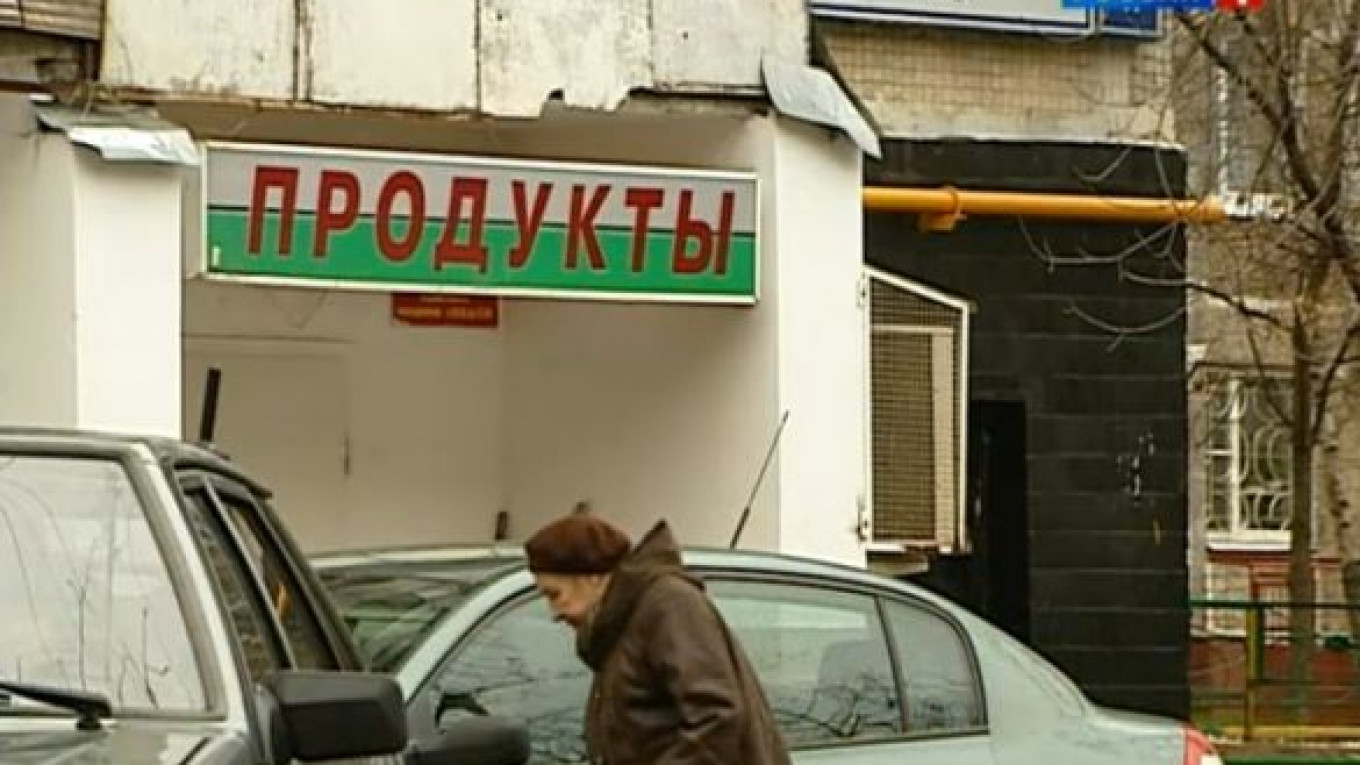Federal investigators have opened an inquiry in response to a complaint from two women that they were held in the basement of a Moscow shop against their will for a decade.
The women also said two young children had been kidnapped from the shop on Novosibirskaya Ulitsa in eastern Moscow, the Investigative Committee said in a statement Thursday.
The inquiry comes two days after civil activists said they freed 13 migrants, including six women and three children, allegedly being held in the store as slaves in squalid conditions, some of them for more than 12 years.
The workers, citizens of Kazakhstan, Uzbekistan and Tajikistan, were also raped, beaten and tortured for trying to escape from the shop, the activists said. The mother of one of the women who was being held appealed to the activists for help, they said.
"These people worked in ordinary jobs as cashiers, storeroom workers and cleaners in the shop, but what distinguished them from other such workers is that they were not paid any money, lived in utility rooms, ate spoiled food, and were barred from leaving the shop at any time," said Maxim Sannikov, who participated in the rescue.
Experts estimate that hundreds of thousands of migrant workers, primarily from former Soviet republics in Central Asia, are forced into unpaid labor in Russia.
But activists say investigators are not interested in following through on this case or acknowledging that the shop workers were slaves.
The owners of the shop, a grocery store called Produkty, allegedly had ties to local police, the activists said.
More than 20 people may be currently held in other shops and apartments run by Saken Muzdybayev and his wife Sulu Dzhan Istambekova, who also run the shop on Novosibirskaya Ulitsa, the activists said.
During the rescue operation at that shop, where the activists were accompanied by two television crews from Ren-TV and NTV, two children aged 5 and 14 were abducted by the shop owners, activists said.
The Investigative Committee said two children born in 2006 and 2007 who were allegedly kidnapped were found in good health. The activists said the 5-year-old and 14-year-old were still missing.
Activist Danila Medvedev said two of the women who they helped rescue were questioned by investigators on Wednesday for three hours but were not given a sworn statement to sign afterward.
"That basically means that there is no evidence and consequently no legal case will be brought," Sannikov said.
The activists said the entire local community knew that workers were being held in the shop against their will, but police in the Golyanovo district where the shop is located refused to investigate.
No one has been arrested as part of the inquiry by investigators, activists said.
Dmitry Valentei, project coordinator at the International Organization for Migration, said migrants are sometimes forced to work without pay when they agree to take a job without having a work permit or a job contract.
"The only way to prevent such situations is to stay in the legal realm, which often depends on the immigrants themselves," he said.
Sannikov said the passports of the workers were taken by the shop's owners, so they could not find out whether they were working illegally or not.
"But the most important fact is that there is slavery in Russia, no matter where the slaves come from," Sannikov said.
Karomat Sharipov, head of the Tajik Labor Migrants civic movement, said one in 10 migrants from Central Asia has been subjected to conditions close to slavery.
"This is for the most part the fault of the authorities of Russia and Central Asian countries," Sharipov said. "If there were a visa regime between our countries, people would have an official status in Russia. At the moment, they [the migrants] don't know what they're getting involved in, because they come to work for private organizations."
Sharipov estimated that there are about 4 million Central Asian nationals in Moscow.
"They don't have any rights, and the police often close their eyes to violations that private organizations commit against the migrants," he said.
Related articles:
A Message from The Moscow Times:
Dear readers,
We are facing unprecedented challenges. Russia's Prosecutor General's Office has designated The Moscow Times as an "undesirable" organization, criminalizing our work and putting our staff at risk of prosecution. This follows our earlier unjust labeling as a "foreign agent."
These actions are direct attempts to silence independent journalism in Russia. The authorities claim our work "discredits the decisions of the Russian leadership." We see things differently: we strive to provide accurate, unbiased reporting on Russia.
We, the journalists of The Moscow Times, refuse to be silenced. But to continue our work, we need your help.
Your support, no matter how small, makes a world of difference. If you can, please support us monthly starting from just $2. It's quick to set up, and every contribution makes a significant impact.
By supporting The Moscow Times, you're defending open, independent journalism in the face of repression. Thank you for standing with us.
Remind me later.






